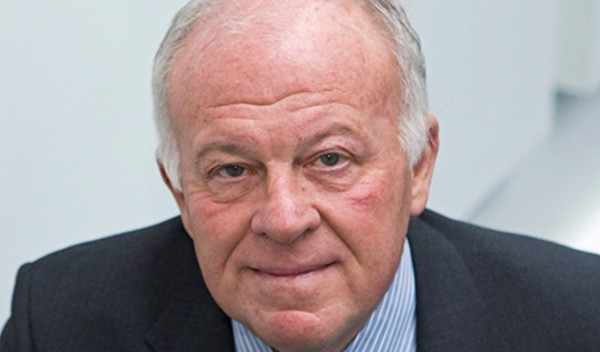

When Peter Hargreaves co-founded the FTSE 100 fund manager and broker in 1981 he didn’t borrow a penny. Here, he talks to Melanie Tringham about the secret to the firm’s stratospheric rise to riches.
Peter Hargreaves admits he will find it hard leaving the board of the company he founded, Hargreaves Lansdown.
He said: “It’s the only thing I’m passionate about. I have a garden that I love, I enjoy fine wines and good food and I enjoy going on nice holidays, but I can’t get excited about them.
“This is my life’s work. It’s never been done before, what I’ve done. No one has ever created a FTSE 100 company without borrowing and acquisition, is that not an achievement? I’ve never borrowed a penny.”
The Hargreaves Lansdown model has certainly been an achievement. It began in 1981 in the spare room of his home, with his colleague Stephen Lansdown sending out a newsletter to the hundred people they could think of, recommending particular unit trusts.
Mr Hargreaves said: “We felt that by directing our clients to better-run funds we would help people make better use of their savings.”
The pair, despite being qualified chartered accountants, were not exactly authorised in today’s sense, but they built a reputation based on picking the right funds (the vast majority are “managed by complete morons,” he said), and receiving commission from the funds recommended.
At the beginning it was tough, when the industry was based on initial commission, but once renewal arrived, ensuring repeat income every year, Mr Hargreaves could not believe his luck, and the empire took off.
Now the company is worth £5.73bn, and Mr Hargreaves, who has a 32.2 per cent stake in the business is reported to be number 49 in the Sunday Times Rich List, with his wealth estimated last year at £1.89bn.
He said: “I never had any doubts in my mind that we would be successful. I looked at the competition and I saw we were better. I knew what we did was good and knew we looked after our clients. I just didn’t envisage the size of the business.”
Crucial to the company’s success was the launch of Vantage, the direct-to-consumer platform, which he launched 13 years ago. It came about simply out of necessity.
Fifteen years ago, providers realised that renewal commission was more valuable than initial commission. Mr Hargreaves said: “What firms realised was they couldn’t get into the marketplace unless they offered a better deal, so they started offering part of the renewal back. But we couldn’t do that. Some of those clients, we didn’t know if they still held those investments, and it became impossible to do.”
About this time Fidelity had already launched Fundsnetwork, and Hargreaves considered using them. But, said Mr Hargreaves: “What we couldn’t get from Fidelity was a guarantee that we could get protection from them going direct to our clients. The only way we could share the renewal is for us to hold all the investments.”
And so the Vantage platform was born. It now holds about £46.3bn of assets and is the largest direct-to-consumer platform in the UK. “We thank Fidelity FundsNetwork for starting up our platform,” he said.
Part of the big attraction was how the discount was packaged up to clients, so that it looked as if they were getting money back for investing through Hargreaves, helped by the deals negotiated by the company with providers due to huge volumes going through the platform.
But it was also helped by Hargreaves’ reputation, and its presence in the FTSE100. The firm was floated in 2007, and entered the FTSE100 four years later. Perhaps surprisingly, Mr Hargreaves was in two minds about floating, but the two other key executives – Mr Lansdown and Theresa Barry – favoured it, the former because he wanted to take some money out of the business and the latter because she thought it would be good for the company.
But would Mr Hargreaves recommend doing the same thing for those wanting to make it big in financial services?
He said: “I don’t think anyone today could start out as truly independent unless they had an enormous amount of money behind them. I think the regulator has killed any chance of any new start-up or entrepreneur. There are opportunities to start up, but they’re always backed by banks or unit trust companies or life offices.”
He is also not particularly happy with the retail distribution review, not simply because of the effect on his business, but on financial advisers large and small.
He said: “There needs to be a mechanism for them to make money easier than billing – very few firms have the reputation and service standards to charge. Although our clients are getting a better deal, 12 months ago they said: ‘You never charged us before’.”
So what tips would he pass on to aspiring entrepreneurs? One thing he lives by is: “Never do anything in a boom that you wouldn’t do in a bust”. And another is: “You’ve got to watch costs like a hawk. It’s very, very easy to let costs run away.”
But ultimately he abides by the Michael O’Leary (of Ryanair) school of business: “Optimists fail, pessimists prevail – if you always think the sun is shining, that’s when you can fail.”
Preparing for the worst helped the company through the 1987 crash – the only time the investment business made a loss – and to a business that exceeded Mr Hargreaves’ most extravagant expectations.
Melanie Tringham is features editor at Financial Adviser
Peter Hargreaves’ career ladder
2015 Stepped down from the board, still remains part-time
2011 Hargreaves Lansdown enters FTSE 100, with shares prices at 615p
2010 Steps down as chief executive of Hargreaves Lansdown, remains executive director
2007 The company floats on the London Stock Exchange with shares priced at 160p
2002 Vantage platform launched
1981 The company starts from Mr Hargreaves’ spare bedroom, with the mailing of newsletters picking funds



